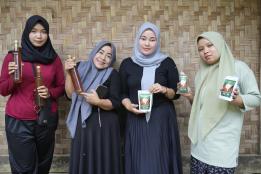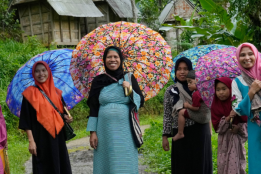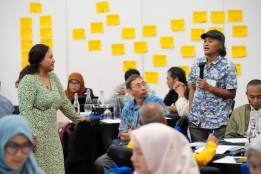Indonesia has one of the largest expanses of tropical forest in the world.
Covering approximately 50% of the country’s land area, its forests provide tens of millions of local people with food, medicine, timber, firewood, and much more. These ecosystems are also home to a wealth of plant and animal species and constitute a carbon sink of global significance.
Yet, this vital environment is under threat. From 2002 to 2015 alone, the country lost more than 7.5 million hectares of primary forest. In 2015, forest loss and land conversion accounted for over half of the country’s total carbon emissions.
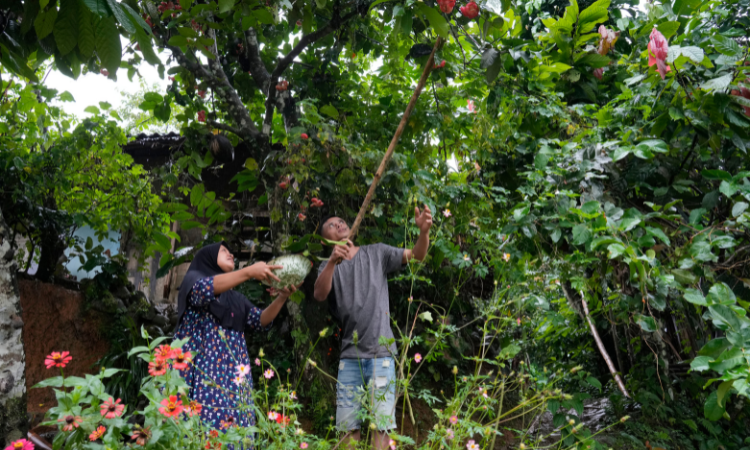
Forest protection has emerged as a top priority for Indonesia, leading the country to adopt a decentralized approach centered around local Forest Management Units (FMUs), introduced in a 1999 forestry law. FMU’s jurisdictions align with ecosystem boundaries, and they actively manage the forests they oversee - not just enforce policies and decisions made by higher authorities. FMUs are responsible for the sustainable management and utilization of forest resources within their designated areas, developing and implementing long-term and annual forest management plans, and ensuring community participation in the planning process.
Setting up 600 FMUs throughout Indonesia’s complex geography was initially challenging. But CIF’s $48.6-million investment in the country as part of the Forest Investment Program (FIP) presented an opportunity. The Government harnessed CIF funding to fully develop, pilot, and validate the FMU model through a project implemented by the World Bank.
The project began in 2016 with national-level work to update regulations, create a roadmap, and develop digital tools such as a knowledge management system and a centralized inventory of forest resources. Extensive training and capacity building for government staff, forestry personnel, and various stakeholders was also supported.
Then, the first FMUs were set up, with 10 pilot FMUs completing their legal documentation, standard operating procedures, and long-term and annual forest management plans. The planning process was designed to be participatory. For example, in all five FMUs covering areas with traditional (Adat) populations, Adat representatives were involved in the planning process.
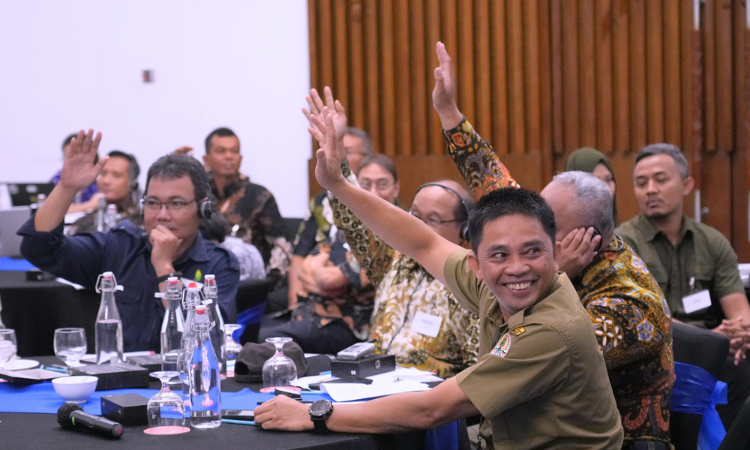
About 850 staff, mainly from the 10 FMUs, received training to help them with their forest management duties, and the skills were put to use: 75% of FMU staff reported using what they had learned on forest security, forest navigation, handling illegal activities, and more. Conflict resolution was also covered, with 6 FMUs trained. A second key objective was to enhance local livelihoods, with evidence of both monetary and non-monetary benefits documented in the project completion report. In total, almost 123,000 Indonesians, including 17,000 Adat people, benefited directly from these units.
Most importantly, piloting the 10 ‘model FMUs’ made it easier for Indonesia to scale up the FMU approach throughout the country. “This seed investment has really led to a recognition that these decentralized management units are key to improving forest management in the country and have led to mobilizing more resources to support this approach,” said Franka Braun, a Senior Natural Resource Management Specialist at the World Bank.
“Deforestation is decreasing after we strengthened our forest management units based on local communities’ involvement,” said Agus Justianto, Director General of Indonesia’s Forestry and Environment Research, Development and Innovation Agency – part of the Ministry of Environment and Forestry. Indeed, after peaking in 2016, in the aftermath of devastating fires, Indonesia’s annual deforestation rates decreased sharply.
But the country’s forests are still in danger today, with some deforestation drivers ramping up, and increased temperatures generating more risks of wildfires, droughts, and other major threats.
With the FMU model set to endure, local champions are expected to play a key role to preserve this precious ecosystem for the benefit of generations of Indonesians.

